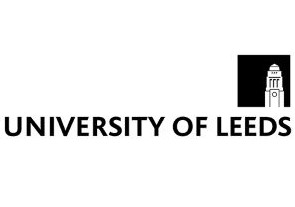Knowledge Transfer Partnership with Spur Therapeutics (formerly Freeline)

Spur Therapeutics (formerly Freeline) develops ground-breaking gene therapies to treat people suffering with chronic health issues.
One of the technologies Spur Therapeutics uses is a modified type of virus - the adeno-associated virus (AAV) as a relatively small vector that can be used to introduce modified DNA (gene of interest) to patients to correct the missing or mutated gene causing their illness. Illnesses currently treated using Spur Therapeutics’ gene therapy technology include Gaucher disease and Haemophilia B.
The challenge
The AAV vector is small, which sets limits on the size of DNA molecule that Spur Therapeutics is able to introduce into the patient’s body. Spur Therapeutics’ ambition is to engineer a bigger virus capsid or 'protein shell of the AAV vector' so it can deliver bigger and more complex genes, allowing it to be used to treat a greater number and complexity of illnesses. A Knowledge Transfer Partnership (KTP) enabled the company to collaborate with the University of Leeds to find a solution.
The solution
The partnership harnessed the University’s computational modelling expertise and understanding of capsid packaging to carefully redesign the virus capsid’s molecular structure. They focused on introducing hexamers to the AAV vector’s pentamer-based structure and exploring ways in which this could affect its stability.
Each KTP project has an Associate employed by the University to work with the company on the project. For this project, KTP Associate Dr Tomasz Kaminski worked at the University’s Astbury Centre in the Faculty of Biological Sciences and once they had developed a robust capsid design, took the plans to Spur Therapeutics’ lab in Stevenage, where they are being tested in the real world.
The impacts
The KTP has created a foundation of knowledge that will provide huge long-term benefits.
Henning Stennicke, Chief Scientific Officer, Spur Therapeutics
Both Spur Therapeutics and the University of Leeds have been impressed by the outcomes of the KTP. It has provided an opportunity to bring the University's extensive knowledge to a real-world application, with potentially massive benefits to society, while Tomasz has gained valuable experience in bridging the gap between academia and industrial application.
Henning Stennicke, Spur Therapeutics’ Chief Scientific Officer, says: “This project was hugely ambitious in its scope and it has created so much knowledge. We have increased our understanding of the really complex biological mechanism of forming a capsid, of going from a symmetrical structure with a single building block to one that has different aspects and compositions built into it. The KTP has created a foundation of knowledge that will provide huge long-term benefits.”
This new knowledge moves the company closer to its goal of creating a vector that will one day allow them to treat a wider range of illnesses through gene therapy.
University of Leeds KTP with Spur Therapeutics (formerly Freeline) (youtube.com)
Find out if a Knowledge Transfer Partnership could help your business by contacting the KTP team at the University of Leeds. Email the Knowledge Transfer Partnership team via ktp@leeds.ac.uk.





















